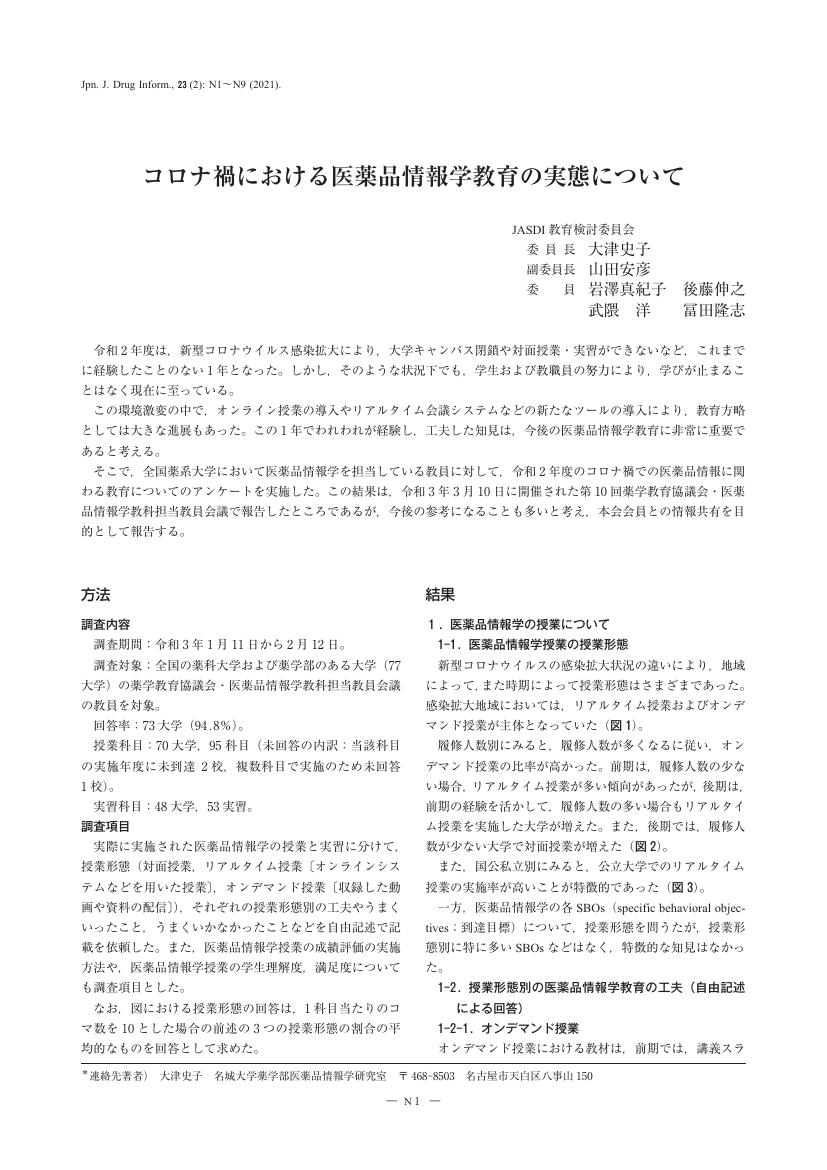4 0 0 0 OA 薬剤師のワーク・ライフ・バランスに関するアンケート調査
- 著者
- 岩澤 真紀子 上田 彩 錦織 淳美 上塚 朋子 中川 直人 島田 美樹 千堂 年昭
- 出版者
- 日本社会薬学会
- 雑誌
- 社会薬学 (ISSN:09110585)
- 巻号頁・発行日
- vol.37, no.2, pp.109-116, 2018-12-10 (Released:2019-01-19)
- 参考文献数
- 17
The demand for pharmacy services has increased recently, and the skills required for pharmacists have also advanced. Therefore, it is important to implement a working system in which experienced pharmacists can continue working full-time when they require child care or nursing care. In September 2016, we conducted a survey of hospital pharmacists on their work-life balance at a symposium of the 26th annual meeting of the Japanese Society of Pharmaceutical Health Care and Sciences. The purpose of this survey was to examine the current trends and issues of hospital pharmacists’ experience of work-life balance in Japan. A total of 84 responses were included for analysis. Overall, 68.4% of pharmacists reported that they were not satisfied with their work-life balance, and 65.8% reported that they were not satisfied with their working environment. In addition, 90.4% of hospital pharmacists reported they worked overtime, and 76.3% reported that their workload level at their place of practice was high; therefore, they could not complete their duties within regular work hours. Seventy four percent of hospital pharmacists answered that they will not able to continue working if they encounter life events such as childbirth and caring for children or parents. These results show that a majority of hospital pharmacists was not satisfied with their work-life balance, and they were concerned about continuing their pharmacy career when they encountered certain life events. As such, it is critical that each work place implement policies on work-life balance to further help support their pharmacists.
1 0 0 0 OA コロナ禍における医薬品情報学教育の実態について
- 著者
- 大津 史子 山田 安彦 岩澤 真紀子 後藤 伸之 武隈 洋 冨田 隆志
- 出版者
- Japanese Society of Drug Informatics
- 雑誌
- 医薬品情報学 (ISSN:13451464)
- 巻号頁・発行日
- vol.23, no.2, pp.N1-N9, 2021-08-31 (Released:2021-09-25)
